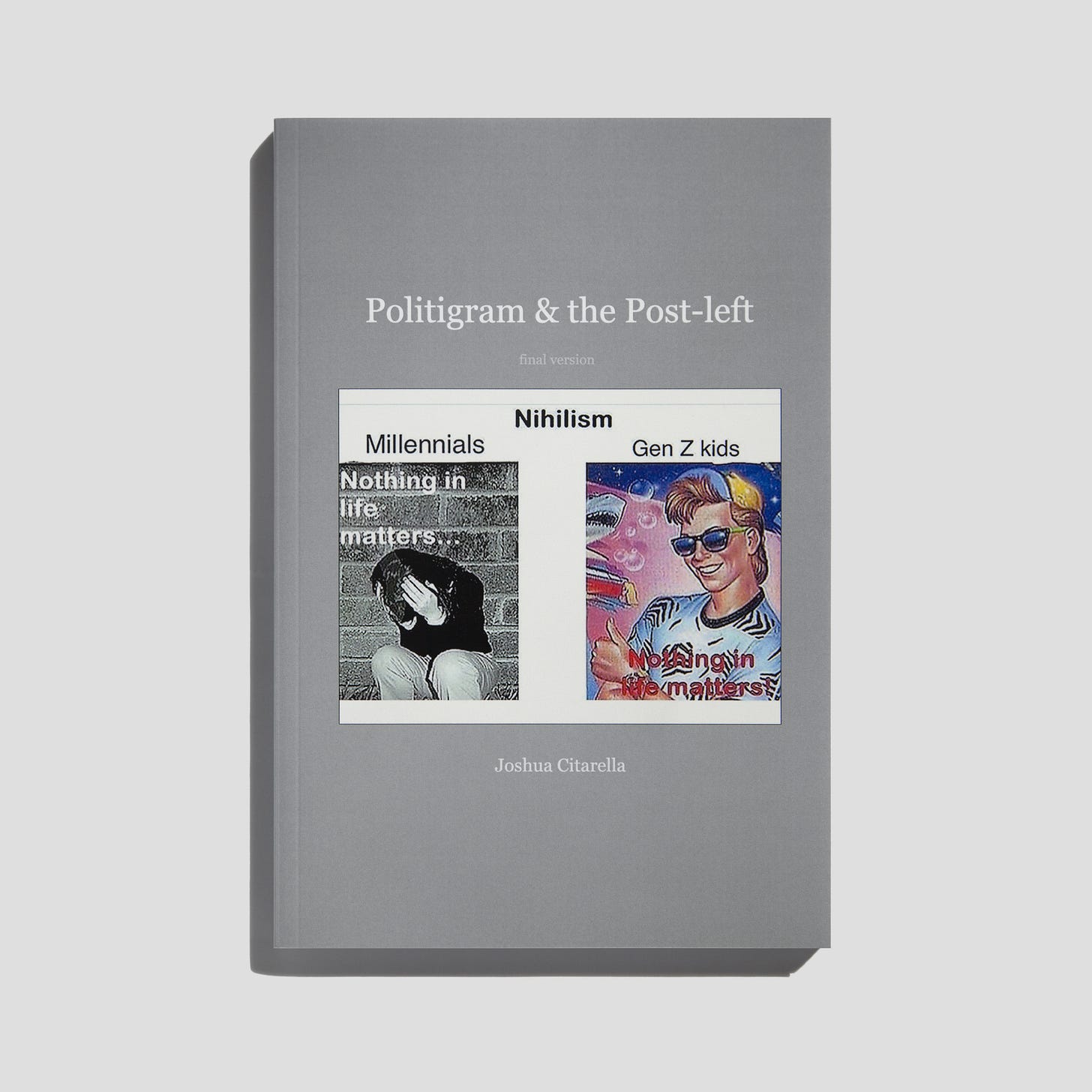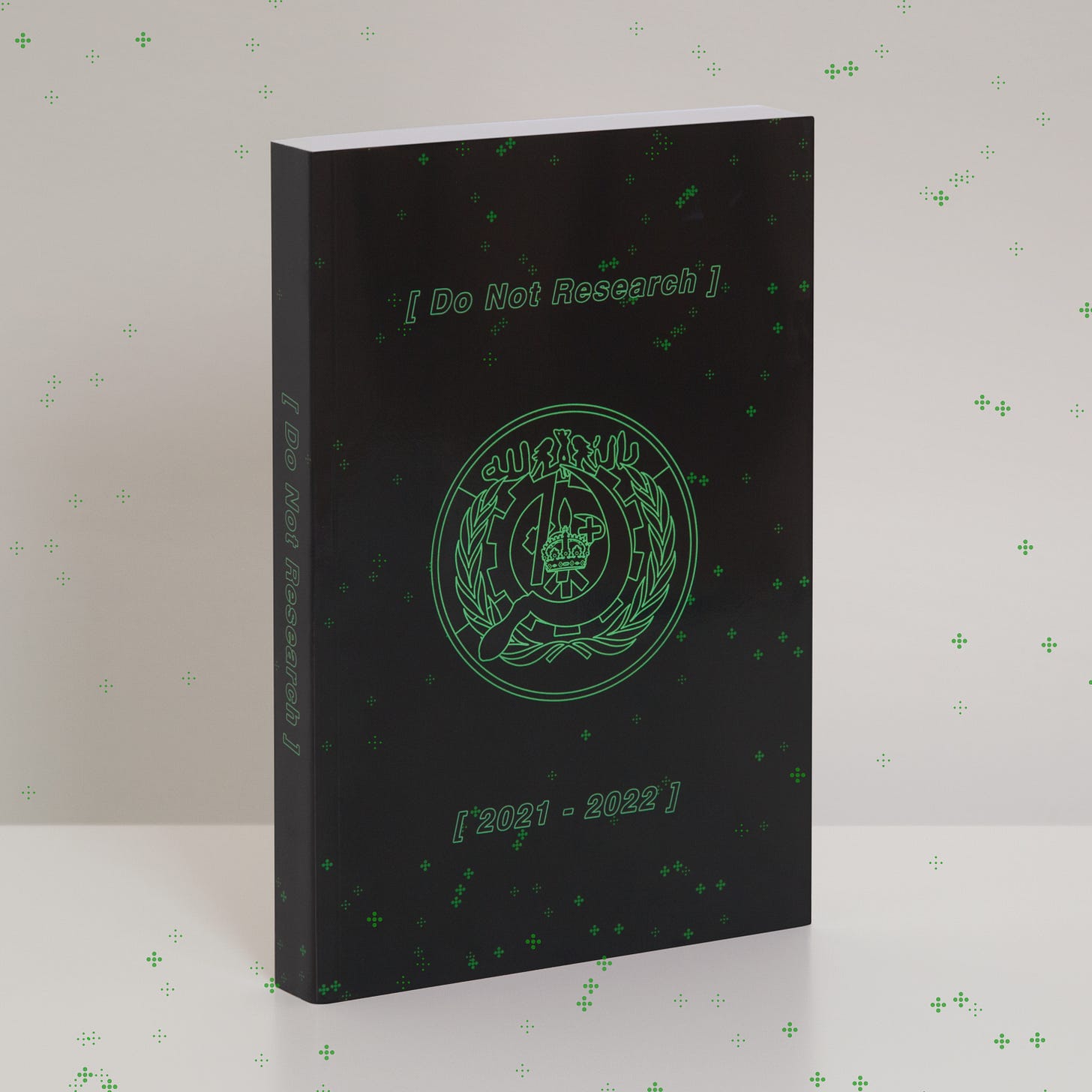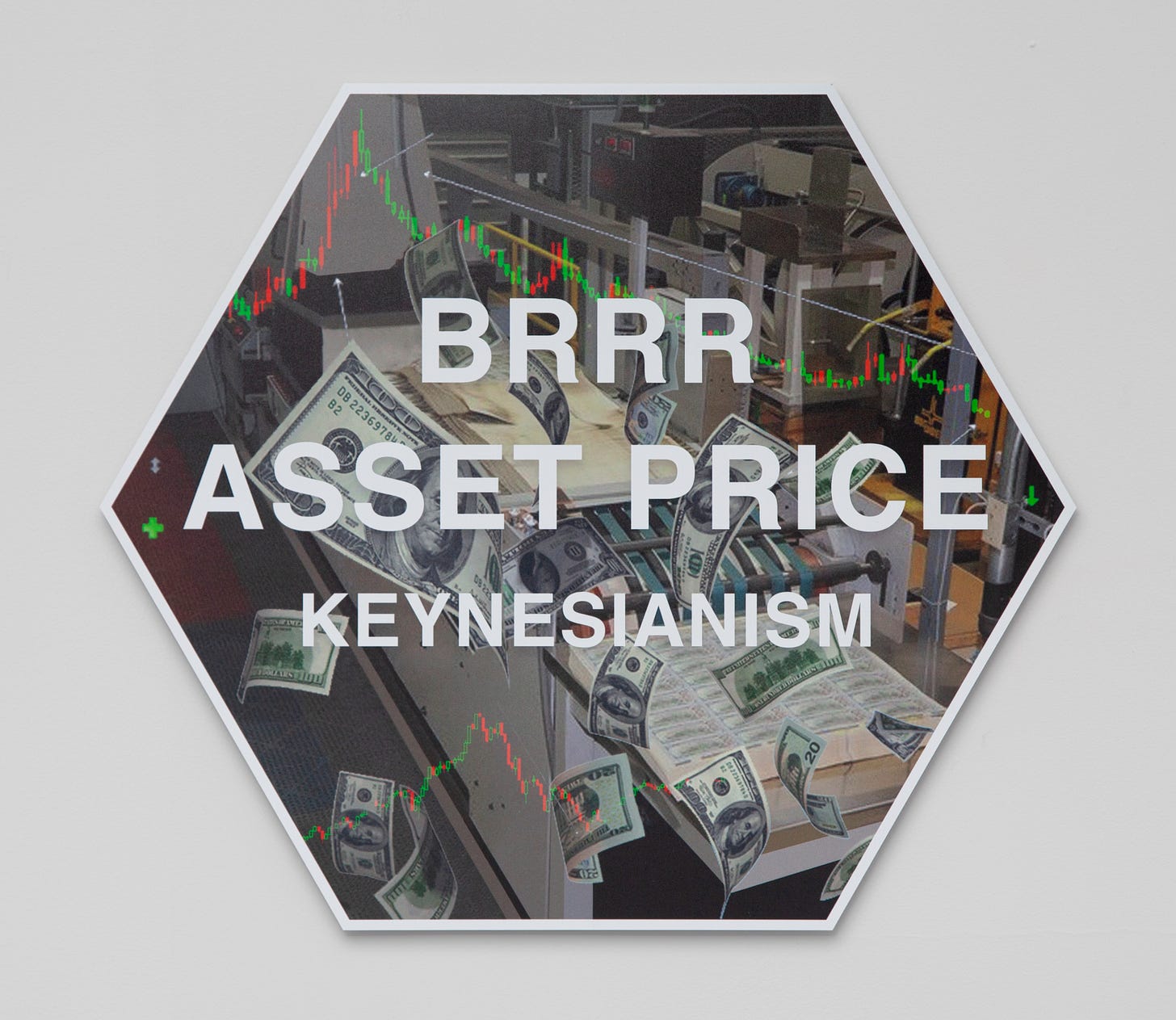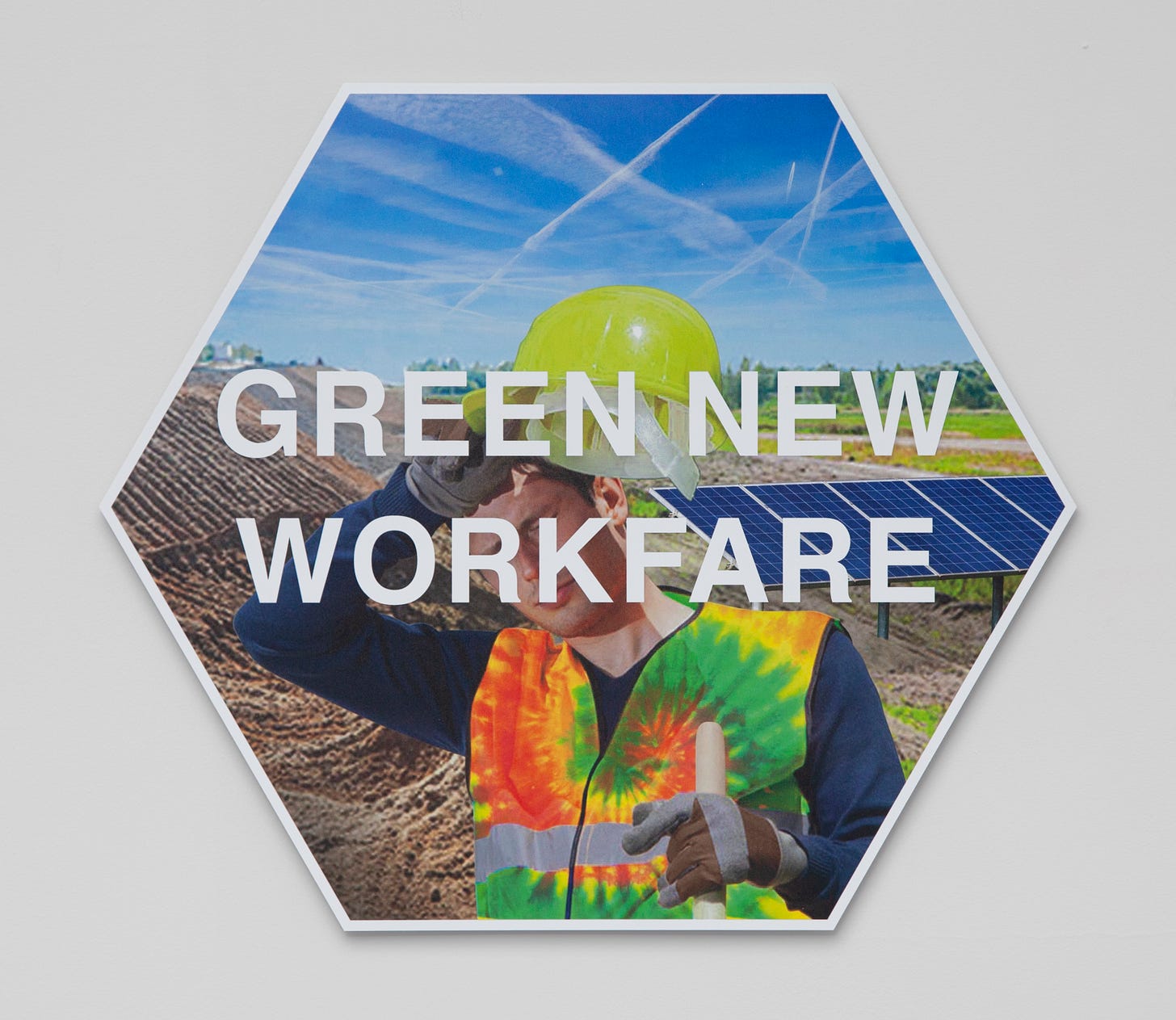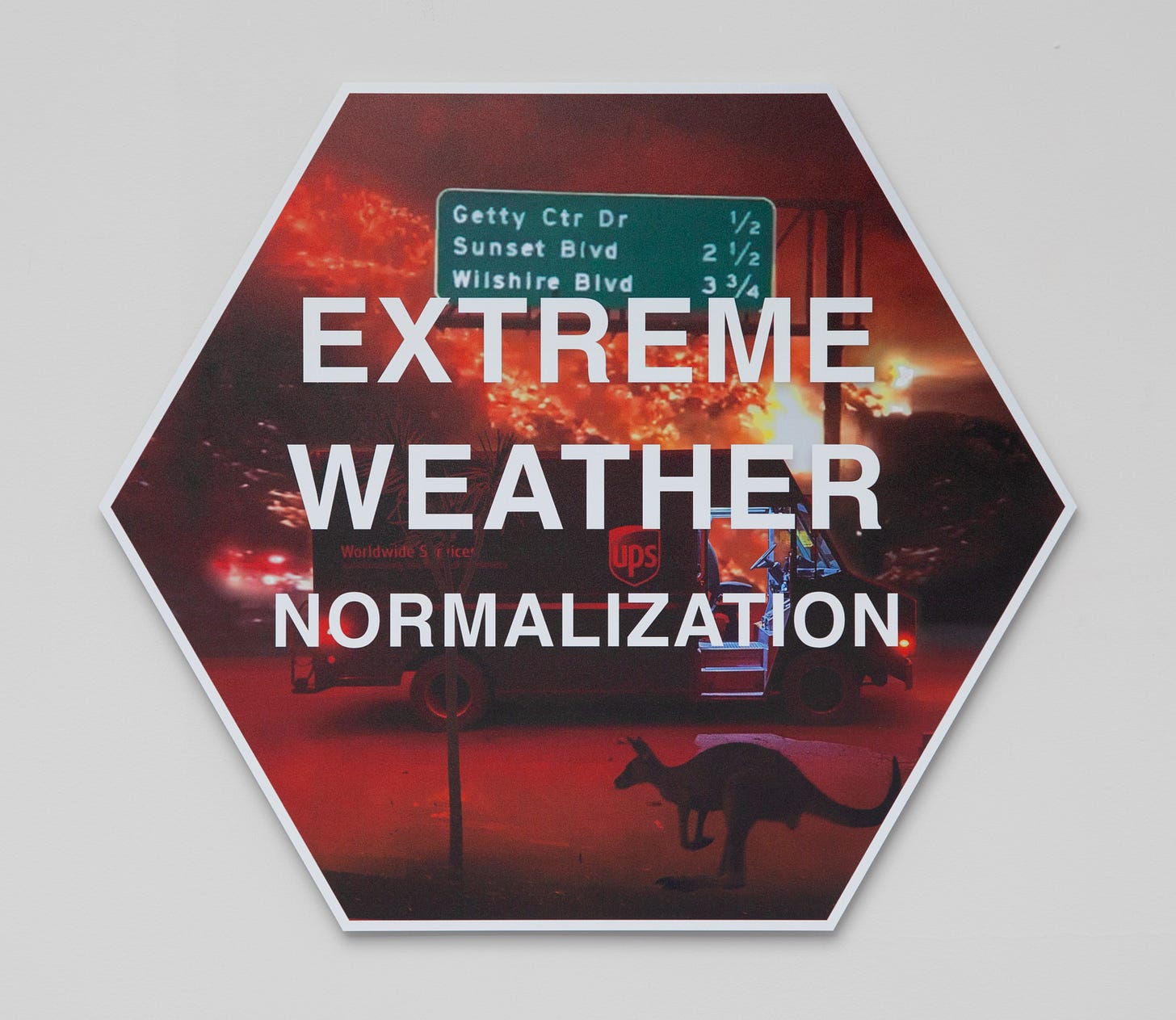Memes x Politics x Culture - Joshua Citarella
The following is based on a conversation I had with Joshua Citarella.
“Please ignore the extremist shitposting” Joshua Citarella, artist, social researcher and internet subculture specialist, jokingly says to me as we chat about the importance of building a mass movement of and for working people. In our current times of rising costs of living, employment precarity and the general deterioration of living standards, the absence of such a movement is palpably felt in daily life, the quality of which worsens yearly for many across the country. Instead of offering solutions to the material needs facing the general population, political elites have instead opted to engage evermore in the increasingly deranged spectacle of the Culture War.
Without a mass movement we are at the mercy of private interests which consistently put profits over the wellbeing of the general population. The opioid crisis comes to mind, but the most recent example to illustrate this harsh reality is the chemical disaster in East Palestine, Ohio. An American Chernobyl caused by freight companies’ successful lobbying of federal and state governments for industry deregulation1. While on the topic of America’s extremely flawed rail system, let’s not forget Biden and the Democratic House only recently denied rail workers the ability to go on strike, when paid sick leave was struck down during negotiations between the unions and the railroad companies2.
Given this harsh reality, according to Citarella the most pressing issue right now cannot be a fantastical revolution--like many on the fringes of the political spectrum wish. Rather, the task at hand is the slow “rebuilding of Labor and institutional power on the Left”. Admittedly what sounds like reform does not exactly “excite the political imagination”, Citarella muses. “Young people want to be inspired by a big political vision. but this stuff is difficult. It's about building power. It's not about having an exciting identity”, he says critically of the online extremists he researches--who are more interested in shitposting than real politics.
Fighting against the enormous concentrations of private capital requires that a broad coalition be built similar to the one led by FDR during the Great Depression in order to bring about the New Deal. The basic demands of social democracy being the centrifugal force keeping this grand coalition afloat: “communists up to liberals all kind of agreed that those things (social democracy) were useful towards different ends”. Only the fight for social democracy can practically unite the amounts of people necessary to wrest State power away from the establishment.
For Citarella, the promise of revolution--at least anytime soon--is not just a false one, but treacherous as well. There is no existing progressive force capable of capitalizing on such a situation, as was the case with the Arab Spring in 2011, which saw, for example, the overthrow of the Hosni Mubarak regime and the ascendancy of the conservative Muslim Brotherhood, and then the subsequent military coup that brought the current dictator, General Abdul Fateh el-Sisi to power.
We need not look as far as Egypt to see the failure of social movements. Since the end of the Cold War, these movements have in the West consistently failed in producing a modicum of actual change. The anti-globalization protests of the 1990s, the Anti-War movement during the Bush era, Occupy Wall St, and most recently, Black Lives Matter. Protest, it seems, has become an act of ritual theater, pitting protesters against police, where anger and desire for change are quickly consumed in the heat of pitched street battles.
For all the radical posturing of “temporary autonomous zones”, and black blocks, Citarella makes the point that they have done little to interrupt the “slow and steady decline of neoliberalism, privatization, and austerity”. The closest thing to what Citarella hopes for in American politics is obviously the movement which backed Bernie Sanders’ two presidential bids, which arguably fought to return the United States to the pre-neoliberal consensus of the New Deal. Indeed, according to Citarella, it is the broad horizon of social democracy, which can appeal to a broad enough spectrum of people, that could build a broad enough coalition to take on entrenched powers.
The feasibility of doing this within the confines of the Democratic Party, is yet to be seen, however. Both of Bernie’s presidential bids were marred by an obvious antipathy towards his campaign on the part of the DNC establishment as well as the mainstream media. As Citarella aptly points out, the Democratic Party’s actual constituency (apart from the mega donors) are the professional middle classes of the major urban areas whose preoccupations have little to do with the real problems facing working-class people, who, in their vast majority, simply do not vote--which we should not take as a sign of apathy--it indicates, rather, the total lack of real political representation for the working class.
For all Bernie did, he was unable to actually create a working-class movement outside of the confines of the campaign and fundraising apparatus. This flaw in strategy makes evident the shortcomings of only using electoral politics as the vehicle for political change. It's clear enough that the working class needs to create a new means of political representation. The grassroots movement cultivated by Bernie’s campaign needs a means to organize itself and advocate for the interests of working people outside of the election cycle.
“The organization, the coalition that we need is so large it's not going to be possible to have a uniform set of cultural values across the entire country.” Citarella replies after I ask him if Trump voters should be included in this grand coalition, “you know we're talking about like 100 million people here, and some of them are going to have views that you know, maybe you and I as good progressives find distasteful”, recalling the fact that many who voted for Obama and Bernie also voted for Trump.
A political realignment must occur across the board, wherein the cultural Manicheism of “liberal vs conservative” which dominates American political discourse must be replaced with a class-based analysis. The Culture War we’ve been subjected to only serves the interests of the elites. At the end of the day, as Citarella points out, our common denominator is that “the value that we contribute to society is at the point of production. We have to go to work every day and produce value.” From downwardly mobile middle-class millennials to the rural and urban poor, the creative industry precariat, we are all workers. We all need access to healthcare, education, and housing. The desperate scramble for survival in which many find themselves in, is not an individual problem, like the grindset hustle culture wants you to believe, it’s a political one.
“These conversations are rare, maybe impossible in the context of the art world.” Citarella says, as we began to touch on the art world's own degradation in the era of neoliberal decline. The art world being obviously intimately enmeshed with the powers at be. Beyond its current existence as a luxury asset for the ultra-wealthy, which carries its own discursive problem, the major problem for art is that “the barriers to entry for creative life are incredibly, incredibly expensive.”, he laments.
The democratization of art does not lie in some kind of semantic democratization, like some people may demand when scoffing at conceptual art. Democratization lies at the point of production, who has the right to live a life in which making art is the central preoccupation? Not everyone deserves to be an art superstar, but everyone deserves the right to commit their life to artistic creation. “The best way to correct that is to reduce the exorbitant cost of living, which is a political thing rather than an art thing” Citarella concludes. The problems facing artists must be resolved politically.
Nonetheless, as platforms such as STP (where this conversation takes place), New Models and Citarella’s own Do.Not.Research (a discord based art and theory collective) prove, alternative spaces for but not limited to art can be built using tools available at hand, such as Patreon, blockchain, and discord servers. Alternative spaces such as these could be the incubators in which the antidotes to the current “paralysis of the political imaginary” (Sirneck) might be conjured by artists and theorists looking for structures outside of the traditional gallery and publishing systems. Platforms for critical thought and open discussion. How can we expand the commons? We’ve been convinced that life equals desperate survival, but it doesn’t have to be that way. Let’s at least talk about it.
February 21, 2023 J. S. E. D. O. (2023, February 21). Ohio train disaster reveals gaping holes in hazardous chemical controls. NRDC. Retrieved February 26, 2023, from https://www.nrdc.org/experts/jennifer-sass/ohio-train-disaster-reveals-gaping-holes-hazardous-chemical-controls#:~:text=The%20disastrous%20Norfolk%20Southern%20toxic,holes%20in%20our%20regulatory%20system.
David Shepardson, N. B. (2022, December 2). Biden signs bill to block U.S. railroad strike. Reuters. Retrieved February 28, 2023, from https://www.reuters.com/world/us/biden-signs-bill-block-us-railroad-strike-2022-12-02/

